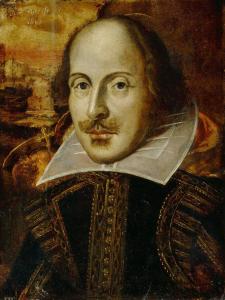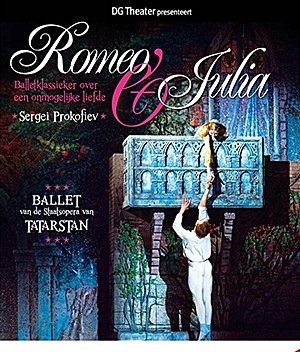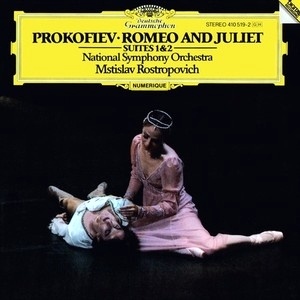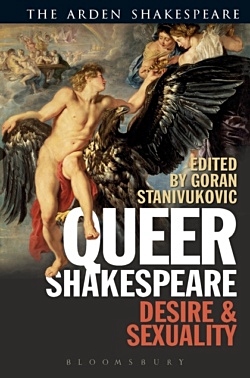Fleurs du Mal Magazine


Or see the index
A thrillingly provocative investigation into the Shakespeare authorship question, exploring how doubting that William Shakespeare wrote his plays became an act of blasphemy…and who the Bard might really be.
 The theory that Shakespeare may not have written the works that bear his name is the most horrible, vexed, unspeakable subject in the history of English literature.
The theory that Shakespeare may not have written the works that bear his name is the most horrible, vexed, unspeakable subject in the history of English literature.
Scholars admit that the Bard’s biography is a “black hole,” yet to publicly question the identity of the god of English literature is unacceptable, even (some say) “immoral.”
In Shakespeare Was a Woman and Other Heresies, journalist and literary critic Elizabeth Winkler sets out to probe the origins of this literary taboo.
Whisking readers from London to Stratford-upon-Avon to Washington, DC, she pulls back the curtain to show how the forces of nationalism and empire, religion and mythmaking, gender and class have shaped our admiration for Shakespeare across the centuries.
As she considers the writers and thinkers—from Walt Whitman to Sigmund Freud to Supreme Court justices—who have grappled with the riddle of the plays’ origins, she explores who may perhaps have been hiding behind his name.
A forgotten woman? A disgraced aristocrat? A government spy? Hovering over the mystery are Shakespeare’s plays themselves, with their love for mistaken identities, disguises, and things never quite being what they seem.
As she interviews scholars and skeptics, Winkler’s interest turns to the larger problem of historical truth—and of how human imperfections (bias, blindness, subjectivity) shape our construction of the past. History is a story, and the story we find may depend on the story we’re looking for.
An irresistible work of literary detection, Shakespeare Was a Woman and Other Heresies will forever change how you think of Shakespeare… and of how we as a society decide what’s up for debate and what’s just nonsense, just heresy.
Elizabeth Winkler is a journalist and book critic whose work has appeared in The Wall Street Journal, The New Yorker, The New Republic, The Times Literary Supplement, and The Economist, among other publications. She received her undergraduate degree from Princeton University and her master’s in English literature from Stanford University. Her essay “Was Shakespeare a Woman?”, first published in The Atlantic, was selected for The Best American Essays 2020. She lives in Washington, DC.
Shakespeare Was a Woman and Other Heresies
By Elizabeth Winkler (Author)
Language: English
Publisher: Simon & Schuster
June 8, 2023
Length: 416 pages
Hardcover
ISBN-10:198217126X
ISBN-13:978-1982171261
£15.00
• fleursdumal.nl magazine
More in: Archive S-T, Archive S-T, Archive W-X, Shakespeare, William

Come away, come away,
death
Come away, come away, death,
And in sad cypress let me be laid.
Fly away, fly away, breath;
I am slain by a fair cruel maid.
My shroud of white, stuck all with yew,
O, prepare it!
My part of death, no one so true
Did share it.
Not a flower, not a flower sweet,
On my black coffin let there be strown.
Not a friend, not a friend greet
My poor corpse, where my bones shall be thrown.
A thousand thousand sighs to save,
Lay me, O, where
Sad true lover never find my grave,
To weep there!
William Shakespeare
(1564 – 1616)
Song: “Come away, come away, death”
(from Twelfth Night)
• fleursdumal.nl magazine
More in: Archive S-T, Archive S-T, Shakespeare, William

Being your slave,
what should I do but tend
Being your slave, what should I do but tend
Upon the hours and times of your desire?
I have no precious time at all to spend,
Nor services to do, till you require.
Nor dare I chide the world-without-end hour
Whilst I, my sovereign, watch the clock for you.
Nor think the bitterness of absence sour
When you have bid your servant once adieu;
Nor dare I question with my jealous thought
Where you may be, or your affairs suppose,
But like a sad slave, stay and think of nought,
Save, where you are how happy you make those.
So true a fool is love that in your will
Though you do anything, he thinks no ill.
William Shakespeare
(1564 – 1616)
Being your slave, what should I do but tend
Sonnet 57
• fleursdumal.nl magazine
More in: Archive S-T, Archive S-T, Shakespeare, William

Who is Silvia?
what is she
Who is Silvia? what is she,
That all our swains commend her?
Holy, fair, and wise is she;
The heaven such grace did lend her,
That she might admirèd be.
Is she kind as she is fair?
For beauty lives with kindness.
Love doth to her eyes repair,
To help him of his blindness;
And, being helped, inhabits there.
Then to Silvia let us sing,
That Silvia is excelling;
She excels each mortal thing
Upon the dull earth dwelling;
To her let us garlands bring
William Shakespeare
(1564 – 1616)
Song: “Who is Silvia? what is she”
(from Two Gentlemen of Verona)
• fleursdumal.nl magazine
More in: Archive S-T, Archive S-T, Shakespeare, William

Take all my loves, my love,
yea, take them all
Take all my loves, my love, yea, take them all:
What hast thou then more than thou hadst before?
No love, my love, that thou mayst true love call—
All mine was thine before thou hadst this more.
Then if for my love thou my love receivest,
I cannot blame thee for my love thou usest;
But yet be blamed if thou this self deceivest
By wilful taste of what thyself refusest.
I do forgive thy robb’ry, gentle thief,
Although thou steal thee all my poverty;
And yet love knows it is a greater grief
To bear love’s wrong than hate’s known injury.
Lascivious grace, in whom all ill well shows,
Kill me with spites, yet we must not be foes.
William Shakespeare
(1564 – 1616)
Take all my loves, my love, yea, take them all
Sonnet 40
• fleursdumal.nl magazine
More in: Archive S-T, Archive S-T, Shakespeare, William
Romeo en Julia van Prokofiev is zonder twijfel één van de hoogtepunten uit de klassiek-romantische ballettraditie.
 Met het beroemde verhaal van Shakespeare als basis, schetst deze voorstelling de geschiedenis van een onmogelijke liefde.
Met het beroemde verhaal van Shakespeare als basis, schetst deze voorstelling de geschiedenis van een onmogelijke liefde.
Romeo en Julia hebben hun hart aan elkaar verpand, maar omdat hun families al generaties lang ruzie hebben, kan het niks worden tussen de geliefden. Dus als ze trouwplannen maken, wordt het huwelijk aan alle kanten gedwarsboomd, met tragische gevolgen.
In de fantastische muziek van de beroemde componist Prokofiev weerklinken de hartstocht en dramatiek die deze choreografie verbeeldt.
 Met dans van wereldniveau brengt het ballet van de Staatsopera van Tatarstan dit ultieme liefdesverhaal in heel Europa met succes tot leven. Hun weelderige kostuums geven de voorstelling kleur en dynamiek. Ook de decors zijn indrukwekkend: die bieden een betoverende achtergrond voor onder meer de uitbundige feesttaferelen in het verhaal en natuurlijk de beroemde balkonscene, die het symbool werd van de romantiek.
Met dans van wereldniveau brengt het ballet van de Staatsopera van Tatarstan dit ultieme liefdesverhaal in heel Europa met succes tot leven. Hun weelderige kostuums geven de voorstelling kleur en dynamiek. Ook de decors zijn indrukwekkend: die bieden een betoverende achtergrond voor onder meer de uitbundige feesttaferelen in het verhaal en natuurlijk de beroemde balkonscene, die het symbool werd van de romantiek.
De passie van de dansers en de hartverscheurende ontmoetingen tussen de geliefden maken van deze voorstelling een aanrader voor alle generaties met een gevoelig hart.
Romeo en Julia
Nog te zien in theaters door heel Nederland
van december 2017 t/m februari 2018.
Meer info:
Wereldtheater.com
DG Theater
info@dgtheater.nl
+31 30 2844 770
fleursdumal.nl magazine
More in: # Music Archive, Art & Literature News, DANCE & PERFORMANCE, Shakespeare, William, THEATRE
Queer Shakespeare: Desire and Sexuality draws together 13 essays, which offer a major reassessment of the criticism of desire, body and sexuality in Shakespeare’s drama and poetry.
 Bringing together some of the most prominent critics working at the intersection of Shakespeare criticism and queer theory, this collection demonstrates the vibrancy of queer Shakespeare studies.
Bringing together some of the most prominent critics working at the intersection of Shakespeare criticism and queer theory, this collection demonstrates the vibrancy of queer Shakespeare studies.
Taken together, these essays explore embodiment, desire, sexuality and gender as key objects of analyses, producing concepts and ideas that draw critical energy from focused studies of time, language and nature.
The Afterword extends these inquiries by linking the Anthropocene and queer ecology with Shakespeare criticism.
Works from Shakespeare’s entire canon feature in essays which explore topics like glass, love, antitheatrical homophobia, size, narrative, sound, female same-sex desire and Petrarchism, weather, usury and sodomy, male femininity and male-to-female crossdressing, contagion, and antisocial procreation.
Queer Shakespeare
Desire and Sexuality
Editor(s): Goran Stanivukovic
Published: 13-07-2017
Format: Hardback
Edition: 1st
Extent: 424 pp
ISBN: 9781474295246
Imprint: The Arden Shakespeare
Dimensions: 198 x 129 mm
Bloomsbury Publishing
$144.00
Queer Shakespeare. Desire and Sexuality
fleursdumal.nl magazine
More in: - Book Lovers, - Book News, - Book Stories, Archive S-T, Archive S-T, Art & Literature News, AUDIO, CINEMA, RADIO & TV, LGBT+ (lhbt+), Shakespeare, William, THEATRE, TRAVESTY & POETRY

William Shakespeare
(1564-1616)
But, soft! what light through yonder window breaks?
“But, soft! what light through yonder window breaks?
It is the east, and Juliet is the sun.
Arise, fair sun, and kill the envious moon,
Who is already sick and pale with grief,
That thou her maid art far more fair than she:
Be not her maid, since she is envious;
Her vestal livery is but sick and green
And none but fools do wear it; cast it off.
It is my lady, O, it is my love!
O, that she knew she were!
She speaks yet she says nothing: what of that?
Her eye discourses; I will answer it.
I am too bold, ’tis not to me she speaks:
Two of the fairest stars in all the heaven,
Having some business, do entreat her eyes
To twinkle in their spheres till they return.
What if her eyes were there, they in her head?
The brightness of her cheek would shame those stars,
As daylight doth a lamp; her eyes in heaven
Would through the airy region stream so bright
That birds would sing and think it were not night.
See, how she leans her cheek upon her hand!
O, that I were a glove upon that hand,
That I might touch that cheek!”
William Shakespeare, Romeo and Juliet
Shakespeare 401 (1616 – 2017)
fleursdumal.nl magazine
More in: Archive S-T, Shakespeare, William

William Shakespeare
(1564-1616)
Lowliness
Lowliness is young ambition’s ladder,
Whereto the climber-upward turns his face;
But when he once attains the upmost round,
He then unto the ladder turns his back,
Looks in the clouds, scorning the base degrees
By which he did ascend
William Shakespeare, Julius Caesar, Act II, sc.1
Shakespeare 400 (1616 – 2016)
fleursdumal.nl magazine
More in: Archive S-T, Shakespeare, William

William Shakespeare
(1564-1616)
To be, or not to be
To be, or not to be: that is the question:
Whether ’tis nobler in the mind to suffer
The slings and arrows of outrageous fortune,
Or to take arms against a sea of troubles,
And by opposing end them? To die: to sleep:
No more; and by a sleep to say we end
The heartache and the thousand natural shocks
That flesh is heir to,–‘t is a consummation
Devoutly to be wish’d. To die, to sleep;
To sleep: perchance to dream: ay, there’s the rub:
For in that sleep of death what dreams may come,
When we have shuffled off this mortal coil,
Must give us pause: there’s the respect
That makes calamity of so long life;
For who would bear the whips and scorns of time,
The oppressor’s wrong, the proud man’s contumely,
The pangs of despised love, the law’s delay,
The insolence of office and the spurns
That patient merit of the unworthy takes,
When he himself might his quietus make
With a bare bodkin? who would fardels bear,
To grunt and sweat under a weary life,
But that the dread of something after death,
The undiscover’d country from whose bourn
No traveller returns, puzzles the will
And makes us rather bear those ills we have
Than fly to others that we know not of?
Thus conscience does make cowards of us all;
And thus the native hue of resolution
Is sicklied o’er with the pale cast of thought,
And enterprises of great pith and moment
With this regard their currents turn awry,
And lose the name of action.
William Shakespeare, “Hamlet”, Act 3 scene 1
Shakespeare 400 (1616 – 2016)
fleursdumal.nl magazine
More in: Archive S-T, Shakespeare, William

William Shakespeare
(1564-1616)
Now is the winter of our discontent
Now is the winter of our discontent
Made glorious summer by this sun of York,
And all the clouds that loured upon our house
In the deep bosom of the ocean buried.
Now are our brows bound with victorious wreaths,
Our bruised arms hung up for monuments,
Our stern alarums changed to merry meetings,
Our dreadful marches to delightful measures.
Grim-visaged war hath smoothed his wrinkled front;
And now, instead of mounting barbed steeds
To fright the souls of fearful adversaries,
He capers nimbly in a lady’s chamber
To the lascivious pleasing of a lute.
But I, that am not shaped for sportive tricks,
Nor made to court an amorous looking-glass;
I, that am rudely stamped, and want love’s majesty
To strut before a wanton ambling nymph;
I, that am curtailed of this fair proportion,
Cheated of feature by dissembling nature,
Deformed, unfinished, sent before my time
Into this breathing world, scarce half made up,
And that so lamely and unfashionable
That dogs bark at me as I halt by them,–
Why, I, in this weak piping time of peace,
Have no delight to pass away the time,
Unless to spy my shadow in the sun.
William Shakespeare, “King Richard III”, Act 1 scene 1
Shakespeare 400 (1616 – 2016)
fleursdumal.nl magazine
More in: 4SEASONS#Winter, Archive S-T, Shakespeare, William

William Shakespeare
(1564-1616)
The poet’s eye
The poet’s eye, in fine frenzy rolling,
Doth glance from heaven to earth, from earth to heaven;
And as imagination bodies forth
The forms of things unknown, the poet’s pen
Turns them into shapes, and gives to airy nothing
A local habitation and a name.
William Shakespeare, A Midsummer Night’s Dream, Act 5, Scene 1.
Shakespeare 400 (1616 – 2016)
fleursdumal.nl magazine
More in: Archive S-T, Shakespeare, William
Thank you for reading Fleurs du Mal - magazine for art & literature